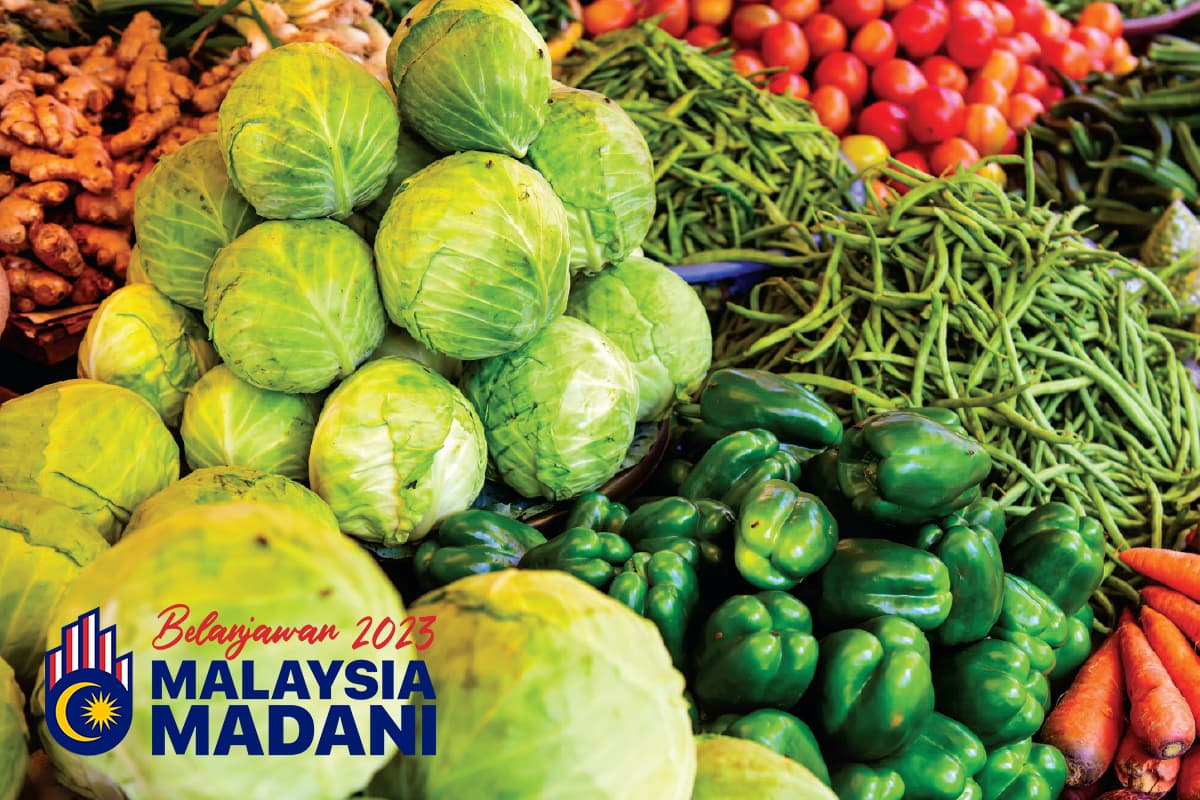
This article first appeared in The Edge Malaysia Weekly on February 27, 2023 - March 5, 2023
IT is no surprise that food security was a major component among the measures taken to lighten the burden of the higher cost of living in the revised Budget 2023, given Malaysia’s massive food import bill.
Food security has been a hot topic in the last few years, and more so over the past year when the country had to deal with the double whammy of a weaker ringgit against a strong US dollar and wild swings in commodity prices brought on by the war in Ukraine.
“Many countries have increased their focus on food security. There are actually a lot of people interested in the agriculture sector, but the main issue is the availability of land. A lengthening of the temporary occupation licence (ToL) will provide certainty and encourage investors to commit to agriculture investment,” says Lee Heng Guie, executive director of the Associated Chinese Chambers of Commerce and Industry of Malaysia’s (ACCCIM) Socio-Economic Research Centre.
“Some government agencies should open up their unutilised land bank for collaboration with the private sector to undertake agricultural activities. Meanwhile, the government should look into the supply chain and the distribution of agricultural products, trading and stockpiling to further enhance the sector.”
The government points out that land use for the purpose of growing food had declined to only 1.2 million hectares, compared with seven million hectares for growing oil palm and rubber trees. As such, under the revised Budget 2023, the government has proposed that the Federal Land Development Authority (FELDA), Felcra, Risda and other agencies under the Ministry of Agriculture and Food Security to allocate up to 800 acres of land for food production.
In addition, the government is roping in the private sector to take part in large-scale agriculture and to improve the use of technology in the sector with 100% income tax exemption on capital expenditure.
This includes getting Lembaga Tabung Angkatan Tentera (LTAT) to collaborate with the Ministry of Agriculture and Food Security to allocate 70 acres of land owned by the group’s investee company to pilot a large-scale domestic grain corn farming project, while concurrently facilitating the second career programme for veterans of the Malaysian Armed Forces.
In a statement, LTAT says it welcomes the government’s efforts in the revised Budget 2023 on the national food security agenda.
“We view the budget initiatives as significant contributors to economic growth as they address the country’s national agenda on food security as well as increase employment opportunities. Overall, this will improve the country’s competitiveness towards becoming a developed nation. LTAT and its group of companies will remain steadfast in discharging our duties and delivering added value to our stakeholders,” says LTAT chief executive Datuk Ahmad Nazim Abd Rahman.
The Federation of Malaysian Consumers Associations (Fomca) president Datuk Marimuthu Nadason says the government is on the right track in not only addressing food security issues, but also ensuring sustainable economic growth.
“The government’s initiative to highlight food security is timely, and it’s getting many of its agencies and other ministries involved, especially to secure more land and large-scale farming to maximise land usage for agriculture. The government also wants to encourage modern farming practices by providing subsidies and incentives to farmers,” he tells The Edge, adding that Malaysia has about 600,000ha to 700,000ha of idle agriculture land.
In addition, Prime Minister and Finance Minister Datuk Seri Anwar Ibrahim announced that Padiberas Nasional Bhd (Bernas) has agreed to share 30% of its net profit with paddy farmers, on top of its RM60 million allocation to rice smallholders in December last year.
Just how much is this 30% share? In FY2021, Bernas reported a profit after tax of RM182 million. Assuming that Bernas continues to report higher profits this year and beyond, it will contribute at least RM50 million to the country’s paddy farmers annually. This will elevate the welfare of paddy farmers.
In his budget speech, Anwar also said the government will continue to distribute various subsidies and incentives to paddy farmers through an allocation of RM1.6 billion and additional RM228 million in the form of RM200 cash payment per month to 240,000 rice farmers for a period of three months.
Apart from production, the government is putting emphasis on increasing productivity as part of its plan to reform the sector through automation and digitalisation. Towards this end, Bank Negara Malaysia will set up a RM1 billion fund to drive the Malaysia Agrofood Financing Scheme, focused on facilitating productivity improvement for entrepreneurs.
Meanwhile, the Digital AgTech programme under the Malaysia Digital Economy Corporation (MDEC) will be expanded to train more smallholder farmers to adopt technology with an allocation of RM10 million.
The government also wants to promote productivity through the agriculture sector, especially among prisoners under the “Program Agro Penjara” for them to engage in agricultural activities on 70ha of prison land, with an allocation of RM10 million.
Save by subscribing to us for your print and/or digital copy.
P/S: The Edge is also available on Apple's AppStore and Androids' Google Play.